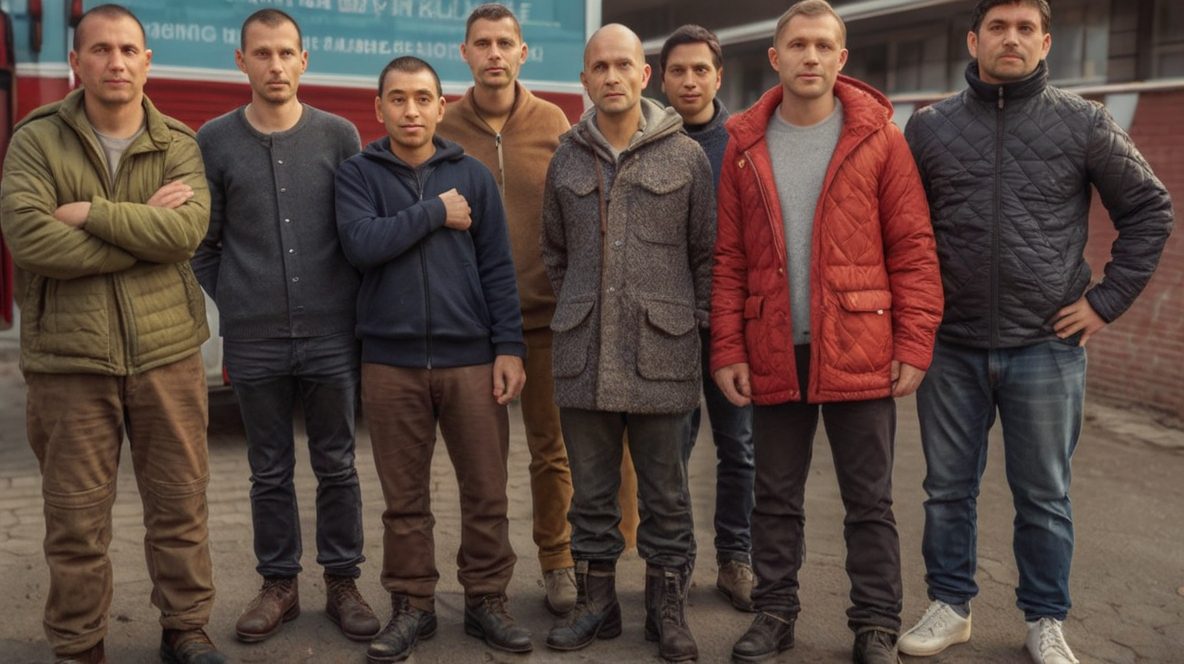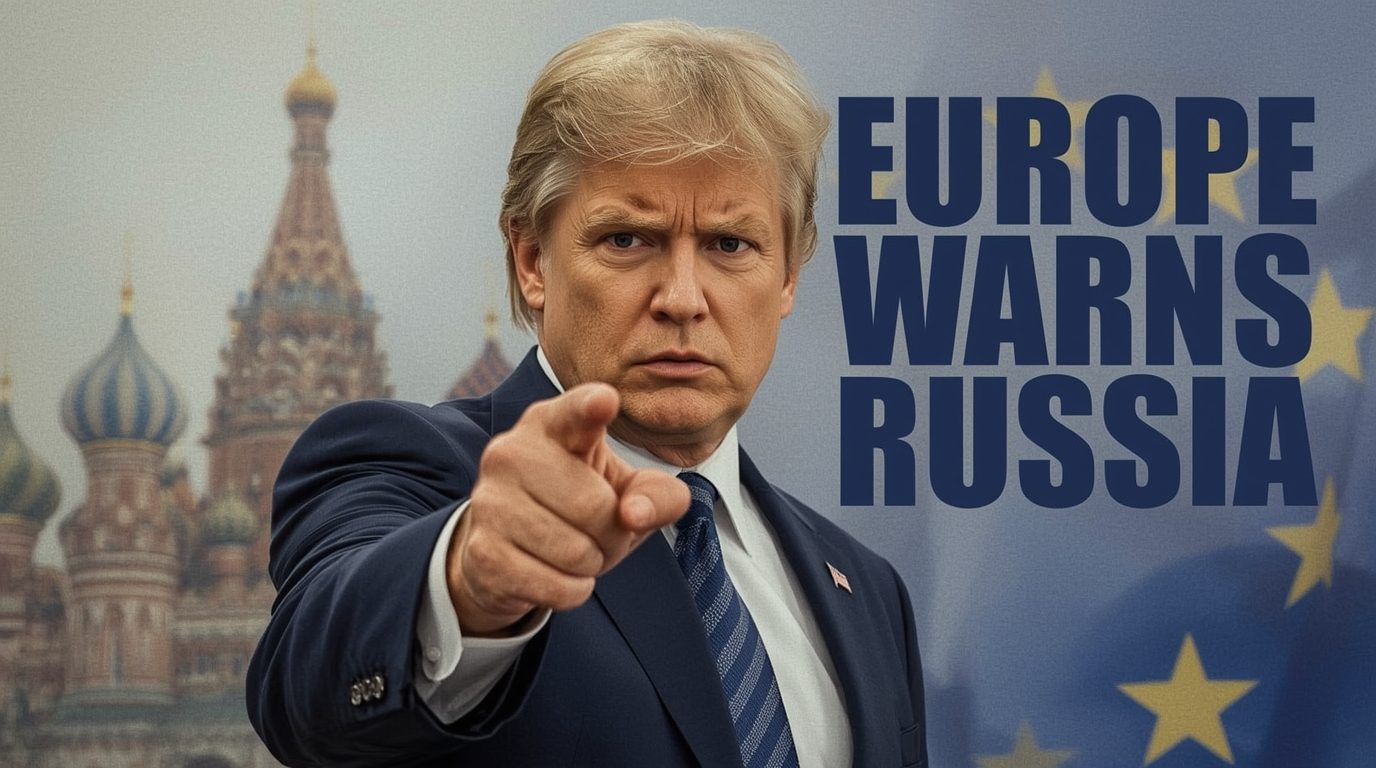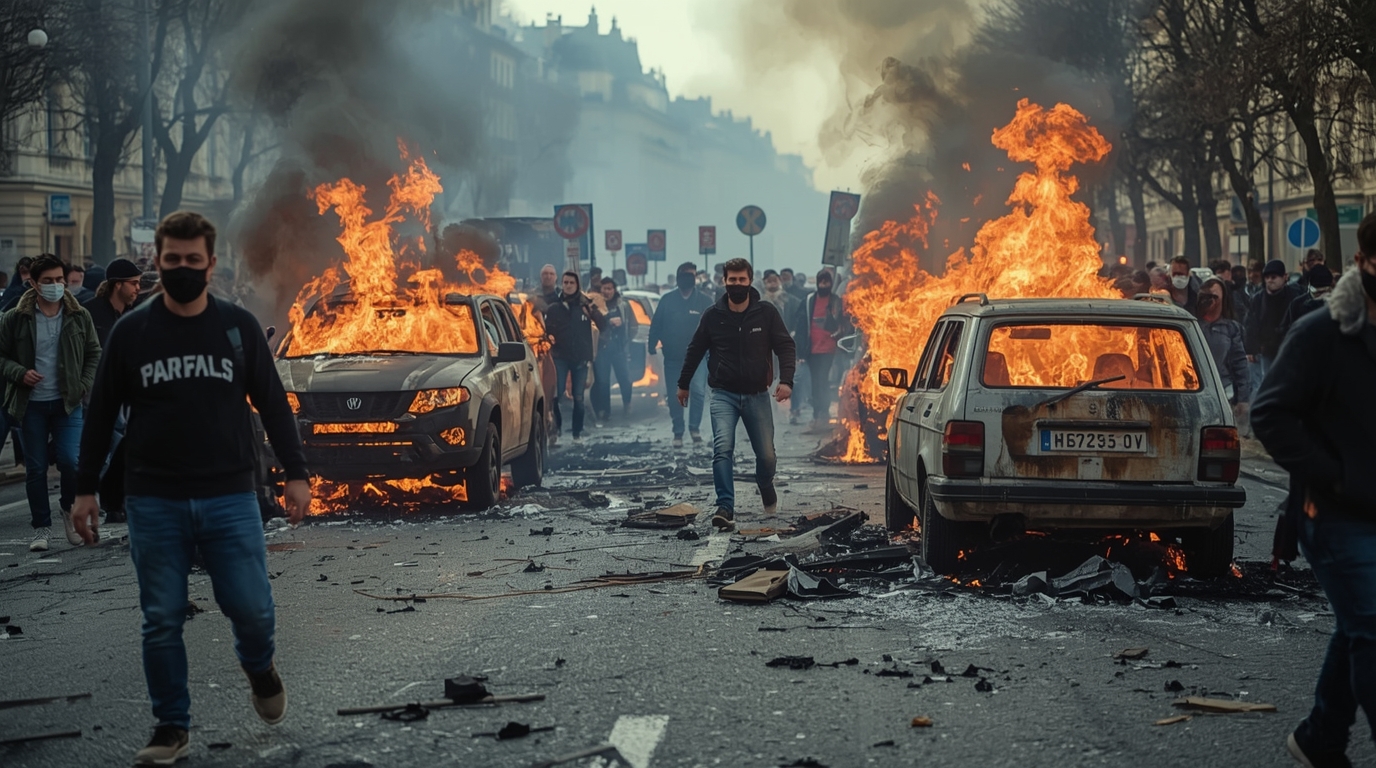‘Mum, Don’t Cry. I’ll Be Home Soon’: Ukrainian Journalist Khilyuk Secretly Held by Russia for Three Years Freed in Rare Prisoner Exchange
Kyiv, Ukraine — As Ukrainian Journalist Dmytro Khilyuk vanished without a trace over the course of three years, those in his life were doing everything possible to try and locate the journalist. Family, fellow reporters, and human rights activists were racing against time searching for clues that Khilyuk was indeed alive.
This past Sunday, the Ukrainian journalist was finally released as part of a rare prisoner exchange that Ukraine and Russia participated in. Kyiv declared the exchange a significant victory for Ukraine’s efforts in not just bringing the released hostages home, but also for the families of civilians that were still held illegally by the Russian government.
Ukrainian authorities released an emotional video that captured Khulyuk’s smiling and weary face as he spoke to his mother over the phone. He looked thin. He was also smiling and appeared to be speaking to his mother just after crossing the border into Ukraine.
The journalist’s emotional words, ‘Mum, don’t cry. I’ll be home soon,’ highlighted the exhaustion and relief he felt in that moment.
From his parent’s perspective, the call provided hope and was the answer they long waited for, after spending over three years trying to locate and free their son, Khulyuk. They received a call that ended years of denial and false reassurances that was provided by the Russian government.
A Disappearance in Occupied Kyiv Region
Fifty-year-old Khilyuk was detained in March 2022 during the Russian occupation of the village Kozarovychi, located just north of Kyiv, over two weeks after Moscow’s full-scale invasion of Ukraine. He and his father, Vasyl, went to the village to get some basic supplies when Russian soldiers took them both captive. Vasyl was released after a few days, but Dmytro remained missing. Russian authorities would not admit to holding him, although many former prisoners confirmed seeing him in Russian jails.
IMI and other organizations focused on freedom of the press raised the alarm very early on, claiming that Russia was systematically targeting journalists, activists, and local leaders within occupied regions in order to control narratives and curb the flow of information.
“Journalists like Khilyuk were the eyes and ears of Ukraine in occupied regions. Their abductions were not accidents — they were deliberate attempts to blind communities,” said Oksana Romaniuk, director of IMI.
Years of Denial from Moscow
In 2022 and 2023, information about Khilyuk was not accessible. Even the Moscow Investigative Committee alongside Bryansk Russian Prison served official denials to his lawyer claiming, they had “no information” regarding Khilyuk.
The only proof of life Khilyuk had kept surviving month’s through captivity was a note sent to his parents dated April of 2022 saying that he was “alive and well.” His family did not receive this note until August.
By the end of 2023, fellow detainees had given years of conflicting testimonies that forced Moscow to admit, albeit discreetly, that Khilyuk was in their custody. They did not provide a trial, location and even confirmation of his whereabouts, which his lawyer later stated that Khilyuk wasn’t even accused of any crimes.
The above legal gray area is in and of itself a breach of any international framework. Under the Geneva Conventions, the occupation authority holding detainees is governed by strict legal standards. It must be clear, justified, and legal. None of that applied in Khilyuk’s case.
The Prisoner Exchange
On Sunday, Ukraine announced that Khilyuk was one of eight civilians released alongside soldiers and security personnel in the swap. As he always did, the Ukrainian president confirmed the news by sharing pictures of the released detainees on his official telegram channel.
According to the Russian’s, 146 of their servicemen were returned in exchange for 146 Ukrainian prisoners of war (POWs). They also claimed that eight Russian civilians from the Kursk region were included in the deal.
Despite Russia’s claims, Kyiv has not confirmed them. In previous interactions, Ukraine has maintained that such individuals were either saboteurs or collaborators, not civilians.
Ukraine’s Coordination Headquarters for the Treatment of Prisoners of War reported that almost all the individuals who were released on Sunday had been detained for over three years, with some enduring captivity since the earliest stages of the invasion.
‘Second Birthday’ for Another Former Detainee
Alongside Khilyuk, another prominent figure who was released is Volodymyr Mykolayenko, the former Kherson mayor. Mykolayenko had been detained since 2022, and previously stated that he would not take an offer for release if it did not include a critically ill fellow prisoner.
“My last years have been nothing but bars and concrete,” Mykolayenko said. “Today is my second birthday. Tomorrow is my mother’s 91st birthday, and I didn’t know if I would see her alive again.”
For the families of detainees, these reunions provide glimpses of light in an otherwise bleak situation.
Thousands Still Missing
Khilyuk’s case highlights a broader issue concerning humanitarian concerns. Kyiv believes that roughly 16,000 civilians are being wrongfully detained by Russia, but the actual figure could be significantly more.
These include:
- Journalists: At least 30 remain in Russian custody.
- Community heads: Local government officials, activists, priests, and mayors.
- Citizens: Everyday people who get captured at the checkpoints during sweeps in the occupied areas.
- Minors: Some are captured under so-called “adoptions” condemned internationally, and are forcibly taken to Russia.
Together with soldiers, civilians, and minors, 37,000 Ukrainians are officially recognized as missing. This staggering figure is a humanitarian abandonment.
Because of the lack of information, families are unable to receive confirmation whether relatives are alive, dead, or missing.
Global Response
Civilians being captured as detainees has long been a strategy of Russia, and it has been Human Rights Watch, Amnesty International, and many others who have declared this as a humanitarian violation. Human Rights Watch and Amnesty International say Moscow’s tactics amount to enforced disappearances — crimes under international law.
The UN Human Rights Monitoring Mission in Ukraine has reported numerous instances of civilians being captured, detained, and held for months or years without any charges. During this time, the detainees are kept in poor conditions and endure mistreatment.
The Committee to Protect Journalists (CPJ) welcomed Khilyuk’s release but urged renewed pressure on Moscow.
“Khilyuk should never have been detained in the first place. Russia must account for the dozens of other journalists who remain illegally imprisoned,” Said Gulnoza Said, CPJ’s Europe and Central Asia program coordinator.
Family Struggles in the Dark
Khilyuk’s parents have been living in a world of fear and confusion for the past three years. They have actively participated in protests, letters, and meetings with political figures in hopes of receiving some form of recognition or assistance, yet most of it seemed futile.
His mother recounted, “Every morning we woke up not knowing if he was alive. We prayed, we wrote, we begged. We had nothing, only hope.”
That hope has now been rewarded, but families across Ukraine continue to remain in a state of uncertainty.
Moscow’s Motives
Detaining civilians serves a myriad of purposes.
- Bargaining in prisoner swaps, trading civilians for captured soldiers.
- Suppression of resistance in occupied regions by community leader removal.
- Psychologic warfare, fearmongering the Ukrainian populace to push the idea that no one is safe.
“Every release is a relief, but it also shows how Moscow is exploiting human lives for political advantage,” explained Volodymyr Fesenko, a Ukrainian political analyst.
A Rare Glimmer of Light
Zelensky also said that the state of Ukraine, both in a humanitarian aspect as well as through the lens of national identity had suffered greatly through the ordeal. Every single citizen is to be valued and fought for, as he expressed the need for constant effort towards the release of all detainees.
“Every return is an indication of what we are fighting for; the honor and freedom of our people.”
Rather than focusing on his health first, he wants to reunite with his family, regain his strength, and hopefully return to journalism someday. At the moment, he is focusing on returning home.
With the border and freedom in view, he told his mother on the phone,
“Mum, don’t cry, I’m almost there.”
Wider Implications
Khilyuk’s release is instrumental to the turning tide in the war as Ukraine rallies its partners for military and diplomatic assistance. His narrative of detention and subsequent release adds a layer of morality to Kyiv’s case, which is built on the premise that Russia is waging a war on territory, but also a war on civilians.
Civilians are presumed to be protected under international law, and in the case of exchanges, there is a legal vacuum which is untouched and chaotic, which differs from the formal POW swaps under governing treaties. This has left countless people in a state where their destiny is put in the hands of politics instead of law.
“This case highlights the urgent need for stronger international enforcement mechanisms,” Kateryna Busol, a Ukrainian international law expert, stated. “Until then, civilian detainees remain hostages of war.”
Conclusion: Hope Against the Odds
Dmytro Khilyuk’s return marks not just a family reunion but a poignant symbol of resilience and defiance: of families who refuse to surrender, of journalists who put their lives on the line to report, and of a nation that seeks to remember and not forget its people.
But beneath the joy is a grim truth: tens of thousands of Ukrainian’s remain unaccounted for, and their families are left waiting for a call that might never arrive. Yet, for one family in Kozarovychi, the nightmare is finally over. Emotional words that a mother longed to hear for over three years, “Mum, don’t cry, I’ll be home soon,” has been uttered.
Stay updated with reliable news:
Sports: Sport Flash HQ
Business: Biz Rush
Weather: The Climate Post
Travel: Neon Report
US Local: 24 Hour Bulletin
India Finance: The Lucky Ledger
General: The Chrono Post



